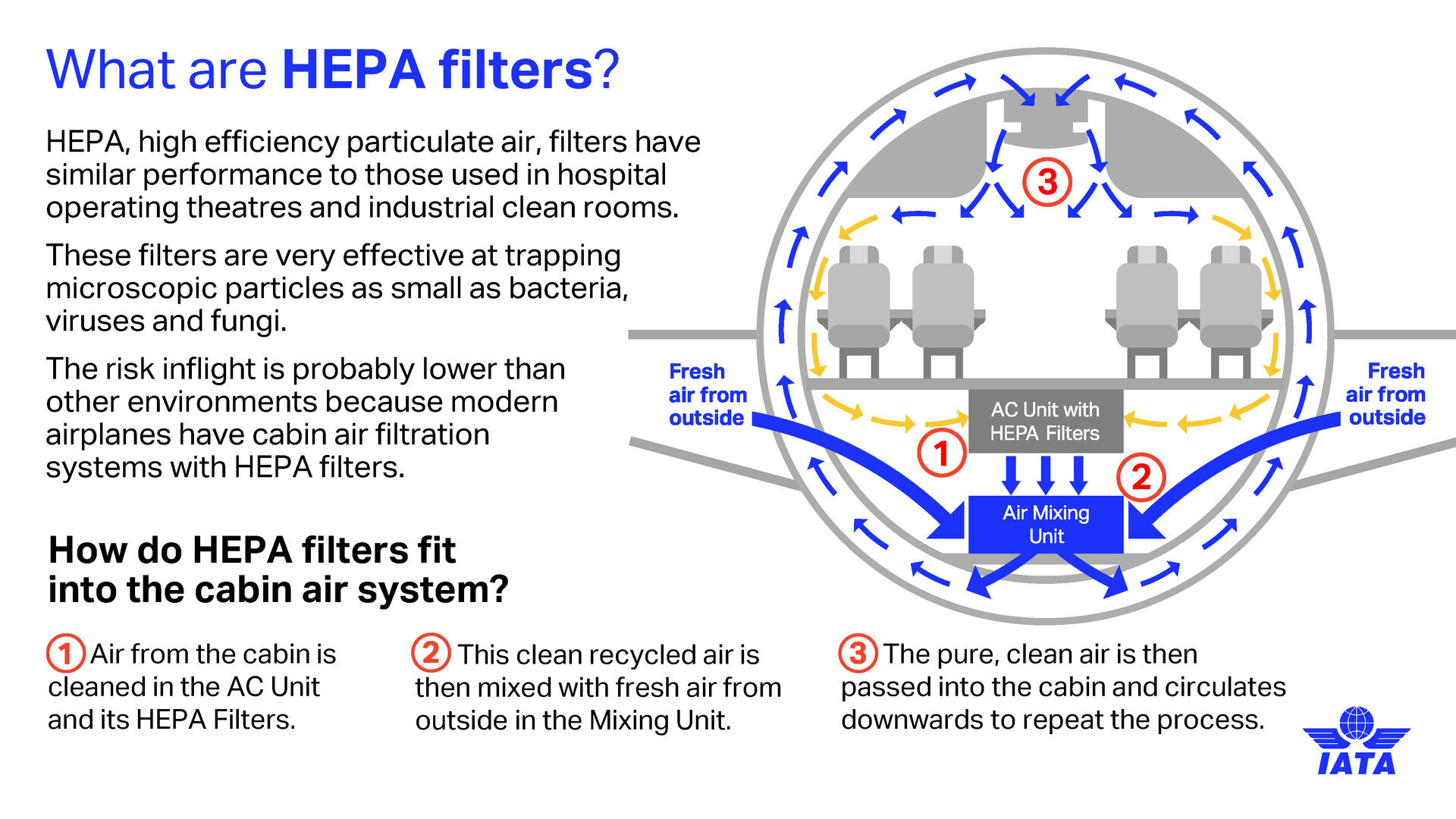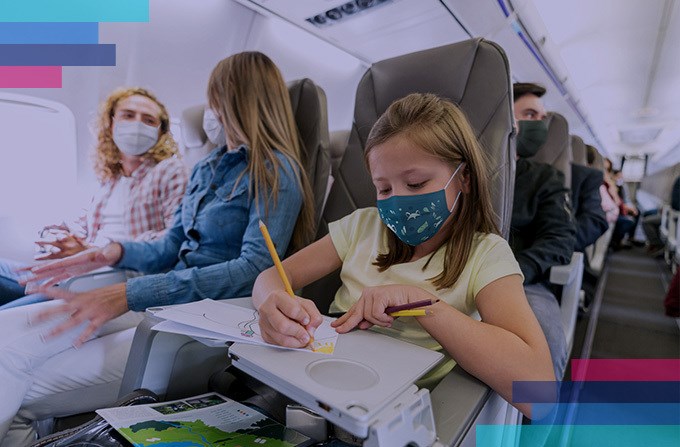
Is it safe to travel by plane during the COVID-19 pandemic? We will try to answer this question without any unnecessary emotions, rather, we will rely on the latest facts based on scientific research. In spring 2020, aircrafts were seen as a dangerous means of transport, so flights were suspended for weeks or even months. However, some time has passed and now we have more information. What is known so far about the safety in airplanes during the pandemic?
The spring lockdown and the associated flight ban is behind us. Was this harsh approach justified? Opinions are divided, especially when we consider that there are new COVID-19 cases in autumn and yet flights are still flying and there are no plans to introduce new bans. That is why we have prepared a set of facts about the safety of air travel during the coronavirus pandemic.
Before you move on to the facts about flying, we encourage you to read the article on airport security measures. After all, that is where almost every foreign journey begins.
What is known about the safety of air travel during a pandemic?
Aircrafts are the safest means of transport
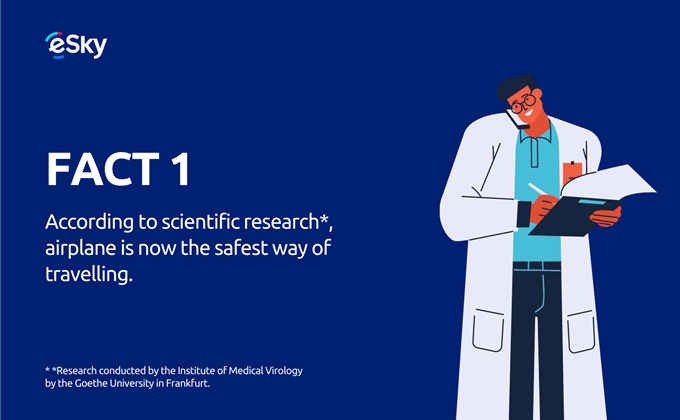
According to the latest scientific research carried out by the Institute of Virology at the Johann Wolfgang Goethe University in Frankfurt am Main, air travel is considered to be one of the safest forms of movement, thanks to the maintenance of an appropriate sanitary regime that has been in place since the beginning of the pandemic. Let us remember that the safety rules are most respected on board a plane. Whereas on busses and trains the sanitary regime isn’t that strict.
HEPA filters in aircrafts stop bacteria and viruses
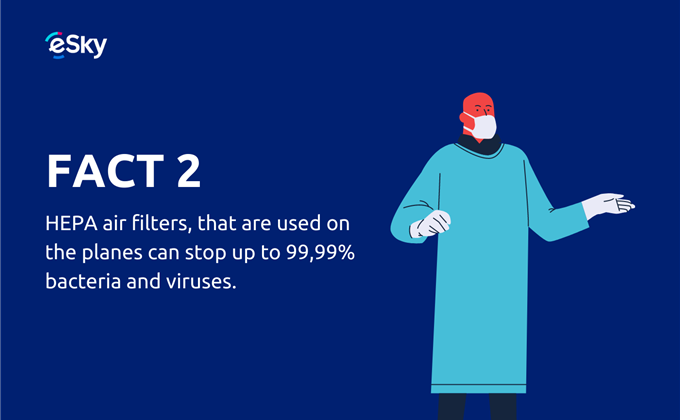
The vast majority of people are probably not aware of this fact, but the HEPA (High Efficiency Particulate Air) filters used on board aircraft retain up to 99.99% of bacteria and viruses. What is more, there is an advanced air circulation system in the aircraft, which allows it to change every 2-3 minutes. The process is as follows:
- The air from the cabin goes into the air conditioning system and is cleaned through HEPA filters.
- In the meantime, the circulation system draws fresh air from the outside and mixes it with clean air from the A/C system.
- As a result, clean and fresh air is distributed in the cabin.
Therefore, the air circulation system with HEPA filters reduces the risk of coronavirus infection to a minimum. It is also worth knowing that these types of filters are not used, for example in trains or coaches.
Below you can see how the process of filtration and air circulation in an aircraft looks like:
Source: IATA (International Air Transport Association)
Location cards allow for the quick identification of infected persons
Travel by plane involves completing a location card. For what purpose do the airlines collect this data? The cards allow for effective locating and notifying people who may have had direct contact on board with an infected person. This makes it possible to carry out tests quickly and possibly rule out the disease.
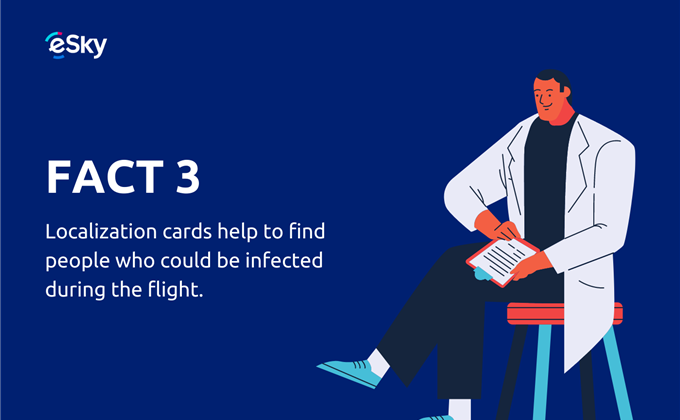
The shorter the journey, the less chance of COVID-19 infection
Apart from taking into account strictly scientific evidence, it is also worth remembering that aircrafts are the fastest means of transport. Flying by plane from point A to point B reduces travel time, which translates into a lower probability of contact with potentially infected people. Because we simply have less time for this! Anyway, it is worth knowing that movement on board a plane is currently kept to a minimum. Is this the case on trains? We will leave this question unanswered.
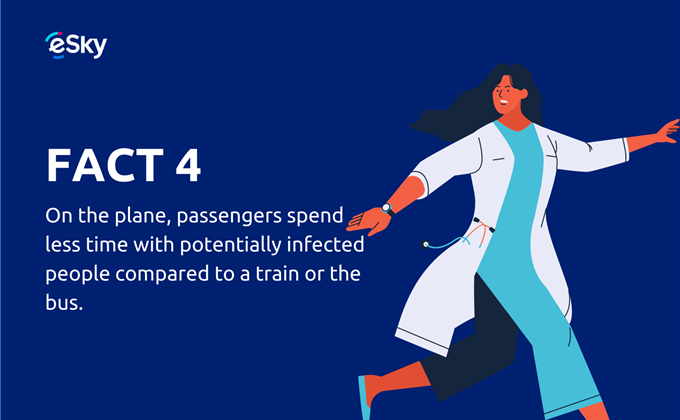
Useful advice: what to remember when travelling by plane
We already know that air travel looks a little different now. But not all is lost - we can still admire the nice views from the window! However, for such pleasures to not be interrupted by the plane's crew, we recommend purchasing masks, antibacterial gel and a pen. Why these items?
- Masks - here the reason is well known to us. Covering our mouth and nose protects us and others from getting infected. It is worth remembering that popular surgical masks should be replaced every 3-4 hours, so if you are going on a slightly longer journey, it is best to take a few with you to be able to replace them during the flight.
- Antibacterial gel - will help to disinfect not only our hands but also surfaces that we will touch many times during the flight, e.g. chair railings, food table or seat belt.
- A pen - why take it on board? The answer is simple. You will need it when you fill in your location card. As we already know, it allows you to locate people who have had contact with an infected person.
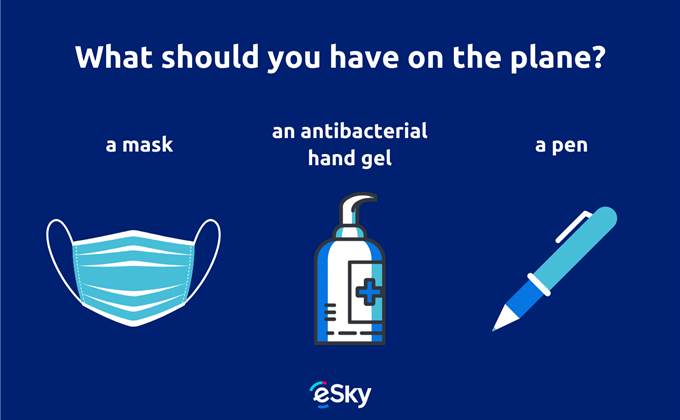
If you want more facts about travelling during the pandemic, check out other articles in the Safe Travel series.


